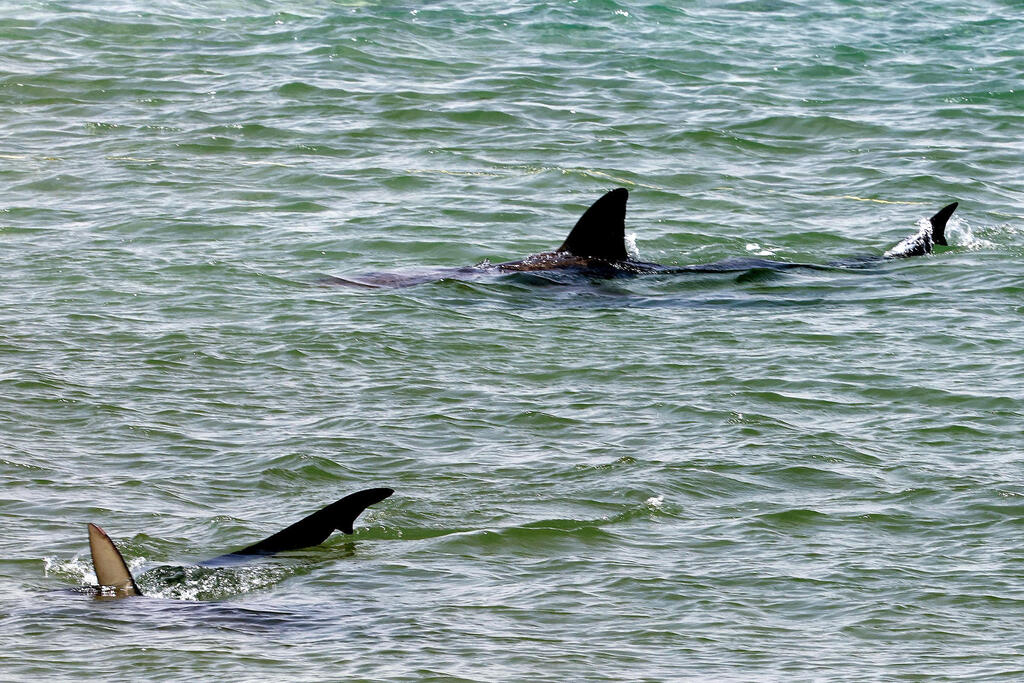Getting your Trinity Audio player ready...
Nearly 24 hours after a man was attacked by sharks off the coast of the northern city of Hadera, search teams located human remains near the site of the incident, police said Tuesday.
Family members of the missing man rushed to the scene visibly distraught. The remains were transferred to the National Center of Forensic Medicine in Tel Aviv for identification and examination.
Hadera beach closed off after shark attack
(Photo: Raanan Ben-Zur)
Police spokesperson Cmdr. Aryeh Doron addressed the media shortly after the discovery, saying, “We are on the second day of searches and are using every available resource. The police commissioner has directed all forces to assist. Several findings have been sent for testing, and we await the results. We are committed to doing everything we can to bring closure to the family and will continue our efforts until the missing man is located.”
From the early morning hours, police teams renewed their search along the beach. They were joined by IDF personnel, civilian volunteers, municipal patrol officers, Magen David Adom emergency responders, ZAKA search-and-rescue teams and Israel Nature and Parks Authority staff.
Get the Ynetnews app on your smartphone: Google Play: https://bit.ly/4eJ37pE | Apple App Store: https://bit.ly/3ZL7iNv
Police have repeatedly warned the public not to enter the water in the affected area or at nearby beaches, which remain closed from Hadera to Poleg Beach in Netanya. Despite the ongoing danger, two young men were seen entering the water near the site of the attack on Tuesday afternoon. Municipal inspectors ordered them out, and they complied.
Following several attempts by beachgoers during the recent holiday to approach the sharks, Hadera Municipality clarified that the beach where the attack occurred is not a designated swimming area, making swimming there illegal. The municipality emphasized that the area lacks lifeguard services and is not equipped to monitor swimmers. Warning signs will be posted to inform the public that swimming is both prohibited and dangerous, regardless of shark activity.
Veteran diving instructor Eliran Ovadia, who dove in the area just days before the incident, spoke to Ynet Tuesday morning. He explained that the sharks are drawn to the site by favorable conditions: “There are warm waters, currents and food. It’s an ideal habitat for this type of animal.”
Ovadia, who has led organized dives at the site for 13 years, said the sharks are well-known to local divers and typically pose no threat if basic safety guidelines are followed. “The sharks swim right by us. They ignore us—sometimes they’re a bit curious, but they never try to attack,” he said.
He stressed the importance of keeping a respectful distance and not feeding the sharks, which can condition them to associate humans with food. “A shark can’t distinguish between the hand that fed it and the food itself,” Ovadia warned. For those planning to dive in the future, he advised avoiding exposed skin in the water. “If the sharks were fed the day before and they see a foot or hand, they could mistake it for food and take a bite. Divers are generally at lower risk, but they still need to stay alert.”






